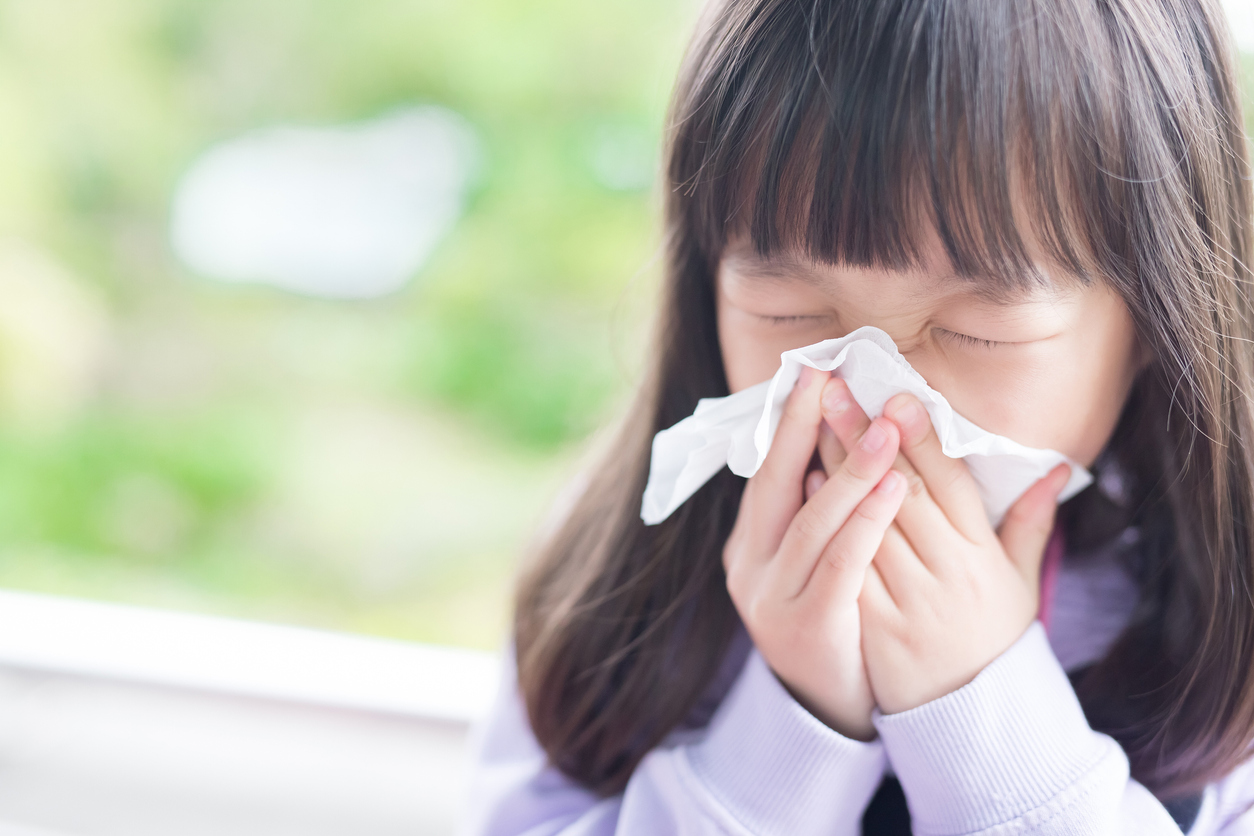The first time your child crawls into bed with you in the middle of the night isn’t a big deal. They need comfort, and it is something you are glad to provide as a parent. However, if your child is routinely waking up during the night or having trouble falling asleep, then it could be a sign of a serious problem. One such cause could be childhood allergies.
Childhood insomnia is actually quite common. One study found that about 25% of children experience some difficulty achieving a healthy sleeping pattern here in the United States. Unfortunately, the fact that the issue is prevalent in American society does not mean that there aren’t serious health ramifications.
A child who isn’t getting enough sleep is more likely to have behavior issues and increased difficulty learning, both of which can have lifelong side effects. Therefore, it is important that you identify the root of your child’s sleeping disorder and do whatever you can to address it.
Children and Sleep
Children under the age of five should get a minimum of eleven hours of sleep every day, including naps. Older children need at least nine. If your child is having difficulty getting the minimum number of hours more than once a week, then it’s time to look for possible causes.
For many children, sleeping issues can be traced back to one of three things:
- Unpredictable Sleeping Schedule
- Caffeine Intake
- Lack of Exercise
To see if your child’s problem is simply a question of routine, you should remove caffeine from their diet, spend more time at your local park playing, and enforce a strict sleeping schedule with no extra water breaks or excuses. If their bedtime is 7 PM, they need to be in bed with the light off at 7 PM. Try this for at least two weeks and note any changes.
Childhood Allergies and Their Effects
If you’ve tried addressing your child’s diet and schedule for at least two weeks without change, then there might be a medical issue preventing your child from sleeping properly. The most likely contributor is allergies.
As a chronic condition that affects around half of the United States population, many of us inherently understand the issue. The itching and congestion are enough to keep anyone up. Once you add in the fact that many children don’t recognize potential triggers and are constantly touching their face, you can imagine just how uncomfortable allergies are for young children.
To determine whether childhood allergies may be a factor in your child’s ability to sleep, pay attention to their breathing behavior during bedtime. Children who appear congested or exhibit other allergy behaviors while in bed are likely suffering from allergy-related insomnia. You may even notice the onset of allergy symptoms while reading them their favorite story. If this is the case, then a dual approach may be required.
First, you will need to address the issue at home by:
- Placing dust mite covers on your child’s mattress and pillows.
- Replacing mattresses that are more than seven years old and pillows that are more than six months old.
- Switching bath time to evening. This will rinse off any allergens, but you will need to blow dry their hair, so use a good heat protectant.
Second, you will need to consult a pediatric pulmonologist in New York who specializes in children’s allergies. Dr. Mayank Shukla has served the New York area for more than fifteen years, helping children and their parents to get a better night’s sleep. Together, you can find permanent solutions to your child’s chronic allergies and insomnia, giving your child a chance to catch some much needed “ZZZ”s.

